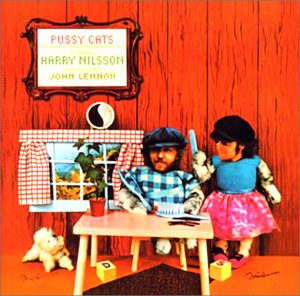
- Format: MP3

The relationship between Harry Nilsson and John Lennon is legendary. They were notorious booze hounds and carousers, getting kicked out of clubs for misbehavior and generally terrorizing L.A. during Lennon's "lost weekend" of 1974. They wanted to make an album together — hell, anyone working at such a peak would — and the result was Pussy Cats, a Nilsson album produced by Lennon. Almost immediately, Nilsson got sick, resulting in a ruptured vocal cord. Not wanting Lennon to stop the sessions, Nilsson never told his friend, stubbornly working his way through the sessions until he lost his voice entirely. These are the sessions that make up Pussy Cats, an utterly bewildering record that's more baffling than entertaining. Like many superstar projects of its time, this is studded with contributions from friends and studio musicians, all intent on having a good time in the studio — which usually means hammering out rock & roll oldies. In this case, it meant both Dylan's "Subterranean Homesick Blues" and the children's song "Loop de Loop," which gives a good idea where Nilsson was at. Through its messiness, Pussy Cats winds up showing how he and Lennon violently careened between hedonism and self-loathing. Of the new songs, the inadvertently revealing "All My Life" is the strongest, followed by the sweet "Don't Forget Me," yet this is more about tone than substance. It's about hearing Nilsson's voice getting progressively harsher, as the backing remains appealingly professional and slick. It doesn't quite jibe, and it's certainly incoherent, but that's its charm. It may not be as wild as the lost weekend itself, but it couldn't have been recorded at any other time and remains a fascinating aural snapshot of the early days of 1974.